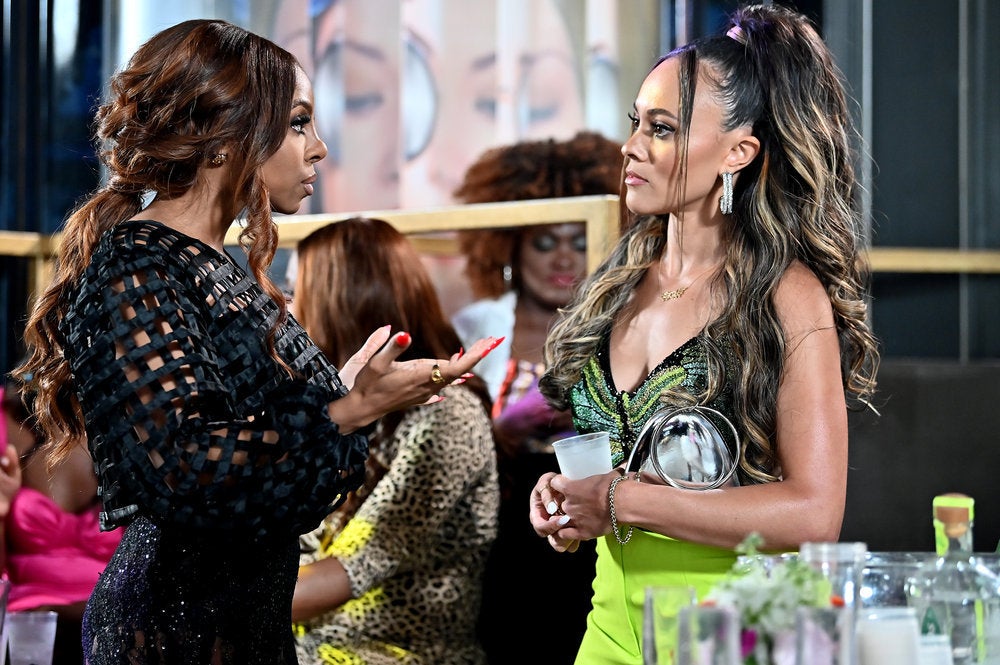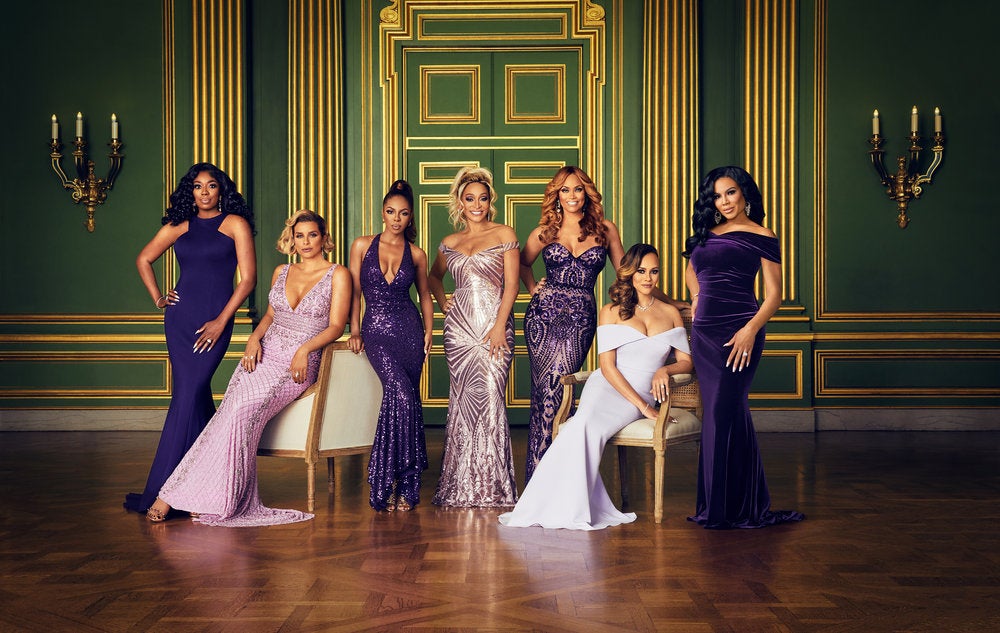
The Real Housewives franchise has become a cultural phenomenon in recent years, with millions of viewers tuning in to watch the drama unfold among aspirational women. However, behind the glitz and glamor, there are real issues the conflicts and interactions taking place across the franchise have highlighted. One of these issues is colorism, a form of discrimination favoring people with lighter skin tones over those with darker skin tones.
One of the more recent examples of this issue occurred during the reunion on Real Housewives of Potomac in which cast member Candace Dillard spoke about the colorism experienced by darker-skinned cast members throughout the series. Although this issue has been present since season one, it has only recently become a topic of conversation.

Colorism is a form of discrimination prevalent in many POC communities, including the African-American community. It is a result of the legacy of slavery and colonialism, where people with lighter skin tones were considered superior to those with darker skin tone due to the phenotypic proximity to whiteness. This mentality has been passed down through generations and is deeply ingrained in society.
In order to fully understand the nuances of colorism, it is important to recognize that although people are no longer walking around with brown paper bags to see who is light enough to associate with, the effects of white supremacy and racism continue to shape our society. As such, people of color are conditioned to have certain conscious and/or unconscious biases, and these biases can lead to negative attitudes and assumptions about people with darker complexions.
The impact of colorism can be seen in a variety of settings in the Housewives franchise. There is a pattern of darker-skinned cast members who have reported feeling mistreated and experiencing negative stereotypes that other castmates of a lighter complexion do not experience. For example, during the Potomac reunion, Dillard pointed out that Robyn Dixon, who is of a lighter complexion, could act irate and belligerent without being labeled as aggressive, while Wendy Osefo, who is of a darker complexion, was labeled as antagonistic when a drink was thrown in her face.

This double standard is a result of the unconscious biases people can have due to their conditioning as Black people in America. These biases can cause people to attribute negative characteristics to people of darker complexions, leading to unfair treatment and discrimination.
It’s important to note that these kinds of disparities are not unique to reality television. In fact, they are rooted in the larger context of American society. Clinical psychologists, Drs. Kenneth and Mamie Clark, conducted the “Doll Study” in the 1940s. The study showed that young Black children having both a White doll and a Black doll attributed negative characteristics to the Black dolls. This study illustrates how colorism can be embedded in us without us even realizing it as a result of White supremacy and internalized racism.
Elitism within the Black community is another issue that intersects with colorism in the Housewives franchise. Elitism is the belief that certain individuals or groups are superior to others based on their social status, education, or wealth. We see this manifested amongst the cast when we see the women brag about the number of degrees that they have earned, the number of homes that they own, and discussions about their involvement in elite social clubs.
The Housewives franchise is not the only reality series that highlights elitism within the Black community. In fact, a new season of Summer House has premiered, and it takes place in Martha’s Vineyard amongst an all-Black cast. Historically, Martha’s Vineyard has been identified as a “getaway for the Black elite.” In fact, the season opener begins with a cast member stating, “Black excellence is Martha’s Vineyard, and Martha’s Vineyard is Black excellence.”

Ultimately, in order to address colorism, elitism, and other forms of oppression within the Housewives franchise and beyond, it is important for individuals to be aware of their own biases and work to overcome them. Overcoming colorism in the Black community requires acknowledging its existence and the ways in which we may been impacted by it or benefited from it. It’s crucial for all Black individuals to recognize that colorism is deeply ingrained in society and has a lasting impact on individuals’ lives and opportunities.
Becoming defensive or denying its existence only perpetuates the cycle of denial. When Black people become defensive when issues of colorism are discussed, it is comparable to the “fragility” experienced by White people when discussing race, as Robin DiAngelo highlighted in her 2018 book, White Fragility: Why It’s So Hard for White People to Talk About Racism. By facing this issue head-on, we can break the cycle of colorism and work towards creating a more equitable society for all.
Dr. Chanda Reynolds is a Clinical Psychologist focused on trans-generational trauma in the Black community.